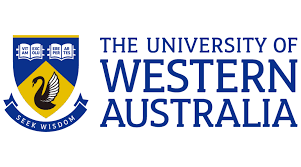University of Western Australia: Funding boost for new defence projects
Defence researchers at The University of Western Australia have been awarded almost $250,000 in State Government funding for two projects that aim to create new drugs to fight diseases and analyse the best ways to alert defence staff to issues.
Chief investigators Dr Mitali Sarkar-Tyson, from UWA’s Medical School, and Associate Professor Keith Stubbs, from UWA’s School of Molecular Sciences, have been awarded $150,000 to develop a new suite of drugs to tackle antibiotic resistant bacteria.
“We hope to develop new therapeutics that will fight against bacterial pathogens which are of biowarfare concern,” Dr Sarkar-Tyson said.
“The compounds we are investigating are thought to be highly active against bacteria causing the diseases Q fever and melioidosis, which are both endemic in Australia.”
“In the future, we hope to design a tailored approach that will boost the effectiveness of the drugs we develop, while undertaking pre-clinical studies to analyse the safety and effectiveness.”
Dr Mitali Sarkar-Tyson
The research group – which is working in collaboration with Murdoch University, Monash University, and the Defence Materials Technology Centre – has also been awarded an additional $50,000 from the Victorian Government’s Defence Science Institute and $50,000 from Therapeutics Innovation Australia.
“In the future, we hope to design a tailored approach that will boost the effectiveness of the drugs we develop, while undertaking pre-clinical studies to analyse the safety and effectiveness,” Dr Sarkar-Tyson said.
Chief investigator Dr Zach Howard, from UWA’s School of Psychological Science, has been awarded almost $100,000 to explore the best ways to alert someone who is experiencing a high workload in defence situations.
“Our research will help system designers ensure operators in defence and emergency services environments are notified as quickly as possible when something goes wrong, no matter how busy or distracted they may be,” Dr Howard said.
“Operators are often multitasking, which presents an interesting challenge to analyse the best type of signal, or combination of signals that can be optimised in specific circumstances.
The research team hopes the investigation will lay the groundwork for further studies in safety research and uncover new ways to alert people in emergency situations.
The research projects are supported by the Defence Science Centre’s Collaborative Research Grant program, which is an initiative of the Western Australia State Government.

